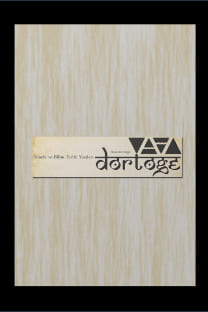Onto-Teoloji Kritiği Bağlamında Negatif Teoloji Değerlendirmesi
Negatif teoloji temelli dinin geri dönüşü tartışmaları bağlamındaki bu çalışma onto-teoloji ve negatif teolojinin Tanrı anlayışları hakkında bir değerlendirmeyi içerir. Heidegger’e göre onto-teoloji kötü bir ontoloji ve kötü bir teolojidir. Onto-teolojinin betimlediği Tanrı’ya insan ne dua edebilir ne de kurban sunabilir, inanan için böyle bir Tanrı’ya ibadet etmenin bir önemi olamaz. Onto-teolojinin causa-sui ilkesi hem sıradan bir dindarın hem de felsefenin Tanrı tasavvurunu daraltmıştır. Derrida da Heidegger’in onto-teoloji eleştirisini benimser ve onto-teolojinin yapısöküme uğratılması gerektiğini ifade eder. Negatif teoloji bu bağlamda onto-teolojiyi aşma imkanı olarak görülmüştür. Çalışmamızın amacı negatif teolojinin gerçek anlamda bir anti-onto-teoloji olup olamayacağını, onto-teolojinin boşluğunu negatif teolojinin bilinemez, kavranamaz, dile getirilemez Tanrı’sının doldurup dolduramayacağını değerlendirmektir
Anahtar Kelimeler:
Negatif Teoloji, Onto-Teoloji, Tanrı, Din
Negative Th eology Assessment in the Context of the Critique of Onto-theology
Th is work in the context of discussions of the return of religion includes assessment about negative theology’s and onto-theology’s understanding of God. According to Heidegger, onto-theology is a bad ontology and a bad theology. Human being neither pray nor sacrifice something to God depicted by onto-theological way. For believers, to worship * Ankara Üniversitesi, Dil ve Tarih-Coğrafya Fakültesi, Felsefe Bölümü Doktora Öğrencisi, MEB’te Öğretmen.such a God is insignificant. Conceiving of God of both ordinary religious and philosophy has been narrowed by causa-sui in the onto-theology. Derrida adopts Heidegger’s critique of onto-theology and states that onto-theology should be deconstructed in this context, Negative theology has been regarded as the facility for going beyond onto-theology. Th e aim of our study is to evaluate the negative theology whether could be anti-onto-theology truly or not and negative theology’s unknowable, inconceivable, undescribable God whether fills the space of onto-theology or not
Keywords:
Negative Th eology, Onto-Th eology, God, Religion,
___
- Almond, I., (2012). İbn Arabi ve Derrida, Tasavvuf ve Yapısöküm, Kadir Filiz. (Çev.). Ayrıntı Yay., İstanbul.
- Alpyağıl, R., (2010). Derrida’dan Caputo’ya Dekonstrüksiyon ve Din, İz Yay., İstanbul.
- Anselm, (2007). Basic Writings, Th omas Williams (Ed. Çev.). Hackett Publishing Company, Inc. Indianapolis/Cambridge.
- Peacocke, J., (2002). Heidegger ve Onto-Teoloji Sorunu, Heidegger ve Teoloji, Ahmet Demirhan (Der.). İnsan Yay., İstanbul.
- Rocca, G.P, (2004). “Speaking the Incomprehensible God Th omas Aquinas on the Interplay of Positive and Negative Th eology”, Th e Catholic University of America Press.
- Rubenstein, M.J., (2003). Unknow Th yself: Apophaticism, Deconstruction and Th eology After Ontotheology, Modern Th eology 19:3, Blackwell Publishing, USA, ss.387-417
- Rubenstein, M.J., (2008). “Dionysius, Derrida, and the Critique of Ontotheology” Modern Th eology, Division I Faculty Publications. Paper 98 24:4.
- Scott, M., (2013). Religious Language, Palgrave Macmillan.
- Scott, M., (2013). Religious Language, Palgrave Macmillan.
- Th omson, I.D., (2012). Heidegger Ontoteoloji-Teknoloji ve Eğitim Politikaları, Hüsamettin Arslan (Çev.). Paradigma Yay., İstanbul.
- Topakkaya, A., (2005). “Nikolas Von Kues’ta Negatif Teoloji”, Bilimname IX, 2005/3, ss.105-116.
- Vattimo, G., (1996). İzin İzi, Din, Dost Kitabevi Yay., Ankara, ss.77-91.
- Westphal, M., (2001). Overcoming Onto-Th eology Toward a Postmodem Christian Faith, Fordham University Press, New York.
- Wolosky, S., (1998). “An “Other” Negative Th eology: On Derrida’s “How to Avoid Speaking: Denials”, Poetics Today, Vol. 19, No. 2, Hellenism and Hebraism Reconsidered: Th e Poetics of Cultural Infl uence and Exchange II, ss. 261-280, Duke University Press.
- ISSN: 2146-7064
- Yayın Aralığı: Yılda 2 Sayı
- Başlangıç: 2012
- Yayıncı: Nobel Akademik Yayıncılık
Sayıdaki Diğer Makaleler
Melek Dosay GÖKDOĞAN, İrem ASLAN, Sevim TEKELİYE
Herbart’ın Geometri Felsefesi ve Riemann Geometrisi Üzerindeki Etkisi
Günlük Ağacı (Liquidambar orientalis, Sığla)
Matematik Tarihi Üzerine Bir İnceleme
Onto-Teoloji Kritiği Bağlamında Negatif Teoloji Değerlendirmesi
Ali Suavi’nin “Hesâb el-Tamâmî ve el-Tefâzül” Adlı Makalesi
1277 Yasağı ve İmam Gazzâlî’nin Tehafütü Arasında Bir Mukayese
Spinoza’daki Olumsallık Üzerine Kısa Bir Deneme
1277 Yasağı ve İmam Gazzâlî’nin Tehafütü Arasında Bir Mukayese
Herbart’ın Geometri Felsefesi ve Riemann Geometrisi Üzerindeki Etkisi
